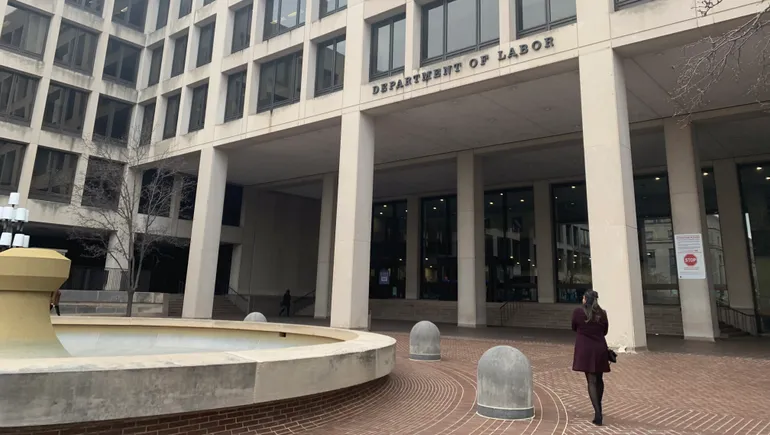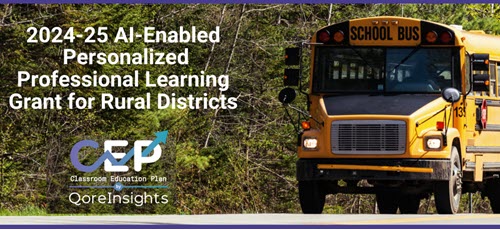NEW YORK – Students are gearing up for the 2023 school year, and new research from Brainly reveals that AI is an integral element in middle and high school students’ academic life – even as educators debate and worry whether the revolutionary technology belongs in the classroom.
In its Back-to-School survey, Brainly, the leading learning platform for all school subjects and grades, highlights a growing trend – a remarkable 66.5% of students in grades 6-12 actively seek external support for their homework and study needs. With 57% expressing concerns about excessive homework, it is evident that students are keen on finding additional resources to aid their academic progress. Forty-five percent of these students spend more than two hours daily on homework.
Where are students going for help? To their AI tools. Brainly’s research shows that 67% of middle and high school students are using AI to help with their schoolwork.
Notably, the survey confirms what parents and teachers experience daily: Mathematics is the most challenging subject, with 45.2% of students identifying it as their biggest academic hurdle. No other subject comes close in terms of difficulty, with English (16.8%), history (14.7%), science (12.3%) and world languages (11%) following way behind.
Following suit, over the last year, mathematics has emerged as the most sought-after subject among users on Brainly, capturing a substantial 31.4% of all subject searches and underscoring the need for assistance. Brainly’s users also seek help in science (18.84%), social studies (17.2%), and English (16.3%).
However, while homework help – especially in math – is a top reason students access Brainly, it’s not the only one. Brainly’s student population relies on the app for help when they can’t understand a teacher’s explanation, for additional information on a topic or to double-check their test prep.
Brainly’s latest research dovetails with its research from June, which highlighted the importance of AI to students’ learning experience, with over 60% of high-school students already seeing long-term positive educational outcomes of AI integration:
- 60% feel AI will better prepare them for their future
- 64% feel it will help them better understand what they’re learning at school
- 65% feel using AI will improve their grades
AI tech that meets students where they are
In light of these findings, Brainly’s approach to integrating AI technology into education takes center stage. Its AI-enabled features are built to give every student access to personalized learning, enabling them to receive verified and tailored answers to their homework questions and help with test prep. Students can seamlessly switch between an AI Tutor and Live Experts for 24/7 learning assistance. They can get the help they need to understand a concept from class or delve deeper into subjects and figure out how to solve questions independently.
Ginny, Brainly’s AI guide, lets students enhance their learning experience using its curated Knowledge Base of over 250 million answers to ensure they receive reliable and precise academic support. Learners receivepersonalized content based on their understanding of a topic, having the option to “Simplify” or “Expand” answers.
“2023 has been a year widely marked by huge advancements in technology and AI,” said Bill Salak, Chief Technology Officer of Brainly. “Brainly is at the forefront of these changes, and during this past year we took a huge leap forward in delivering on our vision to bring high-quality, personalized learning to every student in the world. We’ve added new capabilities, such as AI-generated answers and AI Tutor, and we are more ready than ever to ensure students have a great start to the new school year. Brainly is available 24/7 to help students get unstuck and move forward on their learning path.”
Teachers prepare for AI in the classroom
A recent Brainly roundtable featuring education experts underscored the impact of AI on education, its importance in providing a better learning experience for students and its productivity benefits for teachers. Moderated by Victor Rivero, Editor-in-Chief of EdTech Digest, and Sean Salai, a cultural reporter at The Washington Times, the roundtable also featured Brainly’s Bill Salak; history teacher Cody Ashley from Cristovall Middle School and High School in Cristovall, Texas; science teacher Heather Haas from John Glenn High School in Walkerton, Ind.; and English teacher Mary Ann Rafferty from Williams Middle Magnet School in Tampa, Fla.
“AI in education is not about replacing teachers, but rather about empowering them to deliver personalized instruction,” said Salak. “If we can provide teachers with more and better resources and allow them more time with each student individually, we will get better outcomes. AI can solve this problem by equalizing the playing field, working consistently for everyone in the same way at the same cost.”
AI is poised to facilitate a sea change in education, said Salak. With tools like ChatGPT, enabling access to information should no longer be the primary focus of classroom learning. “Instead, we need to teach kids how to vet and critically assess the vast amounts of information they have at their fingertips so that they become better critical thinkers,” he said.
Echoing that thought, Ashley emphasized that “as educators, it’s our job to keep up with the technology and prepare kids to use AI and other technologies effectively.” He acknowledged that AI could alleviate the burden on teachers and provide additional resources, ultimately improving the learning experience for students.
The roundtable participants collectively conveyed the belief that AI, when used thoughtfully and in conjunction with teacher expertise, can be a powerful tool to enhance learning outcomes for students.
As AI becomes more visible in the classroom, Brainly remains committed to offering innovative, reliable and personalized solutions that support teachers and students in pursuing academic excellence.
About Brainly
Brainly is a leading learning platform worldwide with the most extensive knowledge base for all school subjects and grades. Hundreds of millions of students, parents and educators rely on Brainly as the proven platform to accelerate understanding and learning. Based in Kraków, Poland, with offices in New York City and Barcelona, Brainly apps and websites are visited by users from over 35 countries. Brainly is backed by Prosus, Point Nine Capital, General Catalyst, Runa Capital, Learn Capital and Kulczyk Investments.
Learn more about Brainly at www.brainly.com.





















Discussion about this post